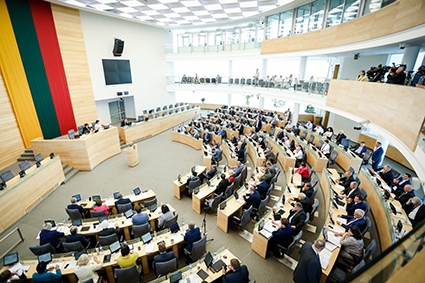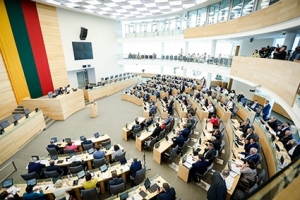Lithuanian Lawmakers Initiate Revision of Georgia-Russia 2008 Ceasefire Agreement
In connection to the 10th anniversary of the 2008 Georgia-Russia War, members of the Homeland Union – Lithuanian Christian Democrats have addressed the Foreign Minister of the country to assess the implementation of obligations of Russia taken under the August 12, 2008 ceasefire agreement.
The MPs claim Russia undertook the obligations to withdraw its military forces to the pre-war position and to allow international observers to have access at the occupied territories of Georgia – Abkhazia and South Ossetia. They noted these obligations have not been fulfilled.
“There has been a violation of international law, creeping occupation continues and there are cases of ethnic cleansing, including persecution and imprisonment of people. Despite war and occupation, the international community has not given a proper answer,” the Lithuanian MPs’ statement reads. They claim that two months after the war, the international community forgot the Russian offense and chose to ignore the fact that Russia had been preparing for more than two years for the attack against Georgia.
“This inert assessment of the world encouraged Russia to take further steps,” the MPs claim, insisting that the sanctions against the Russian Federation need to be discussed.
“We call on the Foreign Minister of Lithuania to appeal to the international institutions and raise the issue of sanctions,” the MPs said.
Georgian presidential candidate and one of the leaders of the parliamentary minority European Georgia, David Bakradze, believes that the Government of Georgia should timely respond to the statement of the Lithuanian MPs, "a very important statement made by Georgia’s friends."
Bakradze says that the Georgian Parliament and the Foreign Ministry should start working with the Lithuanian side, and highlights that this is the first case of an EU member state initiating an imposition of sanctions on Russia for occupying Georgia.
“This is very important, and I want to express my hope that the Government of Georgia will work adequately with Lithuania and the EU on this issue," Bakradze said.
The Georgia-Russia six-point ceasefire agreement, formalized by the United Nations Security Council, was mediated by then-French President and EU Head Nicolas Sarkozy after he met then-President of Russia, Dimitry Medvedev on August 12, 2008, five days after the military conflict between Georgia and Russia.
The six principles of the agreement are:
1. No recourse to the use of force;
2. Definitive cessation of hostilities;
3. Free access to humanitarian aid (and to allow the return of refugees);
4. Georgian military forces must withdraw to their normal bases of encampment;
5. Russian military forces must withdraw to the lines prior to the start of hostilities. While awaiting an international mechanism, Russian peacekeeping forces will implement additional security measures (six months);
6. Opening of international discussions on the modalities of lasting security in Abkhazia and South Ossetia (based on the decisions of the UN and the OSCE).
The Georgian side fulfilled all its undertaken obligations, unlike Russia, whose forces still remain in Georgia’s breakaway Abkhazia and South Ossetia where no international monitoring missions are allowed to work.
By Thea Morrison












